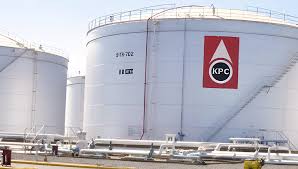The Kenya Pipeline Company (KPC) is set to list on the Nairobi Securities Exchange (NSE) in September 2025, marking a major shift in the country’s privatisation efforts and energy sector. The move is being described as a big opportunity to revive investor confidence in Kenya’s capital market and offer citizens a stake in one of the country’s most strategic assets.
KPC, which is fully owned by the government, will have part of its shares sold to the public and institutional investors. Officials from the National Treasury say the Initial Public Offering (IPO) is a key part of a renewed push to privatise government-owned businesses and raise funds for economic development.
KPC is one of the most vital infrastructure companies in East Africa’s fuel supply network. The company operates more than 1,700 kilometres of pipeline, transporting refined fuel from Mombasa to Nairobi and other depots inland. It is a profitable state-owned company with monopoly powers in its sector.
According to Treasury records, KPC generated over Ksh 30 billion in revenue during the 2022/2023 financial year, with net profits of more than Ksh 5 billion. The company’s strong cash flow and central role in Kenya’s economy are likely to attract dividend-seeking investors, especially if the government ensures improved transparency and corporate governance.
This planned listing would be the first major public sale of shares in a state enterprise since the high-profile IPO of Safaricom in 2008. That listing drew more than 800,000 retail investors and was oversubscribed by over 500 percent, making it one of the most successful in the region’s history.
While other state listings like KenGen (2006) and Kenya Re (2007) had strong beginnings, they later struggled with poor share price performance due to issues like policy changes and weak governance. More recent listings, such as NCBA’s entry through NIC Bank in 2019, were less vibrant and largely focused on institutional buyers.
The NSE, East Africa’s largest capital market, has seen a difficult period in recent years. The exchange recorded low trading activity, fewer new listings, and declining confidence from both local and foreign investors. The situation worsened in 2023 during a major bear run, where stock prices, including that of Safaricom, dropped due to tough economic conditions and regulatory concerns.
KPC’s IPO is now being viewed as a rare chance to restore faith in the NSE. The government hopes that a successful sale of shares in such a strong-performing company will signal to investors that the market is ready for a rebound.
However, the path forward is not without challenges. KPC has in the past been linked to corruption scandals and irregular procurement deals. Market experts warn that these legacy issues must be tackled openly. Without improvements in accountability and management, both local and international investors may remain hesitant.
The issue of pricing is also a key factor. If the IPO is priced too high, it could lead to low interest from the public. In the past, some government listings were overpriced, leading to investor losses and long-term damage to market trust.
According to market analysts, the government must avoid repeating such mistakes. Transparency in how the company is valued, how the shares will be distributed, and how the funds raised will be used will be vital in convincing Kenyans to buy in.
KPC’s operations are tied to regional economic activity, giving it a unique position compared to utilities or insurance firms. Its listing, if done well, could not only boost the NSE but also offer everyday Kenyans a chance to invest in a national asset.
As Kenya continues to search for ways to manage its rising public debt and attract investment, the KPC listing could become a defining moment. But everything depends on how well the government handles the process — with fairness, clarity, and a clear break from past issues.
